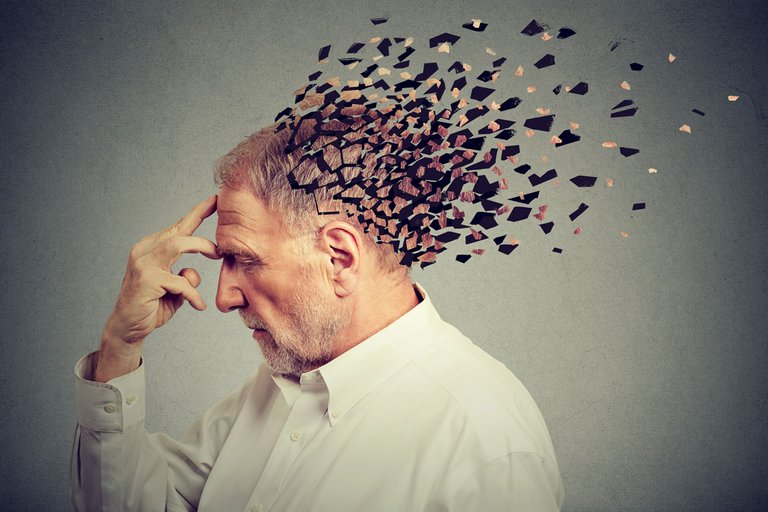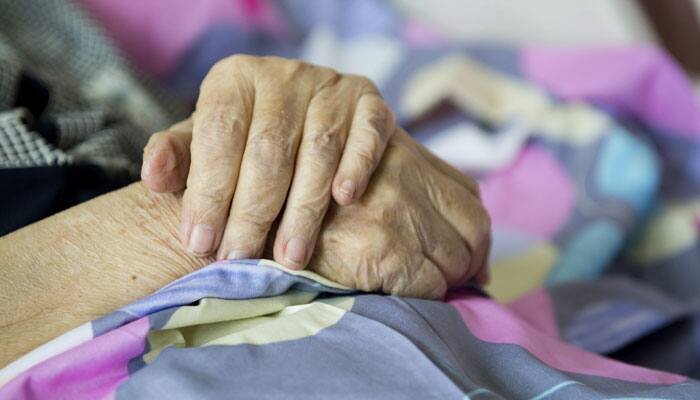Memory Loss - How It Started and What Are the Symptoms

Memory decreases with age. To a certain extent, you can influence how fit your memory is. It's also a question of what you're interested in. If we go out with people a lot and are open to new things, we are already training our brain cells. Talking to other people, for example, requires short-term memory: after all, we have to be careful what our counterpart says and remember it, at least for a short time, so that we can give the right answer. Exercise in the fresh air and adequate sleep are also important for our memory.
It all started from harmless to serious
Who hasn't left a key on the table before? Occasionally forgetting something is normal. But if we forget how to make a phone call or if we get lost walking around the block at home, there may be a serious memory problem. This is how harmless forgetfulness and serious memory disorders differ.
Some people become more forgetful in old age. They find it harder to learn something new than before, sometimes they forget certain events or they are constantly looking for their glasses. These changes are the hallmarks of harmless forgetfulness. With easy forgetfulness, there is still a lot we can do to make our memory fit again such as:
- Go among people
- Sleep well, exercise regularly and eat healthy
- Always put your wallet, keys, and glasses in the same place
- Seek help when we feel sad and upset
- Use notepads and calendars and write down important things for us
With serious memory disorders, everyday things suddenly become difficult for us. For instance:
- Forget what time it is
- Forget how to make a bed
- Forget who we're talking to
- Ask the same question over and over
- Forget to eat and drink
- Get lost in areas we know from the back of our hand
- Forget our hygiene

Causes & Symptoms
With increasing age, the memory decreases due to brain aging and the ability to react, remember and learn decreases. The brain, like the body, is subject to an aging process. It is believed that over the decades proteins have been deposited in the brain's nerve cells, which damage the energy production of the cells and impair the information transfer in the brain.
Sometimes you just can't remember where you put your glasses down or a certain word just doesn't come to mind. To a certain extent, temporary forgetfulness is perfectly normal. Forgetting even has an important function for memory performance, the brain filters the unimportant from the important and there is space for new content.
However, certain factors encourage forgetfulness to occur more often like stress, poor sleep, loneliness, lack of activity, psychological stress, insufficient fluid or temporary exhaustion.
Serious, but mostly temporary, memory problems can be triggered by diabetes, high blood pressure or certain medications. Infectious diseases such as pneumonia or deficiency symptoms also harm mental performance.
In these cases, adequate treatment of the underlying disease or discontinuation of the medication usually leads to a restoration of brain performance. Serious diseases such as brain tumors, brain infarctions, multiple sclerosis, inflammation of the brain vessels, and craniocerebral injuries can be possible reasons for an often irreparably reduced brain performance.

Alcohol abuse and drugs have serious and lasting consequences for brain performance. Memory performance is also influenced by mental illnesses such as depression, anxiety disorders, post-traumatic stress disorders, or psychoses. In elderly patients, the doctor, therefore, needs to examine closely whether it might be an age depression instead of a serious brain disease.
Persistent and increasing memory disorders can also be signs of progressive brain disease. With dementia, the cells in the brain die and the brain structure changes. As a result, there are failures and impairments of memory and behavior changes. Contrary to popular belief, Alzheimer's dementia is inherited in less than one percent of cases.
What should we do?
If you are seriously concerned about your memory, you should go to the doctor, the doctor can check the medication intake. He will also have blood and urine tests done. This serves to determine whether everything is okay with the metabolism. There are also psychological tests that can be used to test memory, problem-solving skills, number memory, and language skills. Targeted questions can be used, for example, to find out whether short-term or long-term memory is disrupted. Computed tomography images of the brain can also show where healthy and where problematic areas are in the brain. Depending on the situation, the doctor will also refer his patient to the neurologist.

Proper Nutrition
The place of the brain in the skull is limited. Because it cannot create any energy reserves, the brain lives from hand to mouth: Even though it only makes up 2% of our body weight, it needs 25% of our basic metabolism every day. The basal metabolic rate is the amount of energy that the body burns in complete calm. The brain's energy requirements can now be calculated very easily 25% of 1,440 kcal is 360 kcal. The daily energy requirement of the brain is 360 kcal for a person 1.60 m tall. This 360 kcal is visualized, for example, in a sandwich with butter, sausage, or cheese plus an apple.
Antioxidants as protector of memory
The brain is very sensitive to free radicals. These constantly arise in the energy metabolism of the cells. Also, external influences increase the formation of free radicals in the cells. These are UV rays, cigarette smoke, high alcohol consumption, and environmental pollutants. Our defense system uses free radicals as weapons against attacking microorganisms. But if the free radicals get overbore, they cause permanent damage.
The free radicals are so active because they have a free hand or a free electron. They want this electron to get in company. So they steal an electron from another molecule. Experts say the robbed molecule is oxidized. It becomes a free radical and retrieves an electron from another molecule. This leads to a chain reaction. In the brain, this chain reaction damages the protective sheaths around the nerve cells - unless it is stopped, the body uses law enforcement officers to do this. Experts call these keepers antioxidants.

Antioxidants supply free radicals with electrons without becoming free radicals themselves. In addition to phytochemicals, the best known are antioxidants
- Vitamin C
- Vitamin A
- Vitamin E
Fluid for the memory
Sufficient drinking helps for a good memory. Our brain needs water. The equivalent of nine glasses of 0.2 liters each, an impressive number, but it can be done. Tap water, mineral water, unsweetened herbal or fruit teas are suitable as thirst quenchers. If we have drunk too little, this leads to dry skin. Also, there is headache, joint pain, and muscle pain. Besides, we can hardly concentrate when there is a lack of water. In extreme cases, the lack of water leads to memory disorders and even mental confusion. Set up the container with the daily drinking amount in a visible position and take a sip from time to time. Fruits and vegetables that are rich in water also help to meet the daily need for fluids. For example melons, citrus cucumbers, or leaf lettuce.
References:
https://www.mayoclinic.org/diseases-conditions/alzheimers-disease/in-depth/memory-loss/art-20046326
https://www.helpguide.org/articles/alzheimers-dementia-aging/age-related-memory-loss.htm
https://www.healthinaging.org/tools-and-tips/caregiver-guide-memory-problems